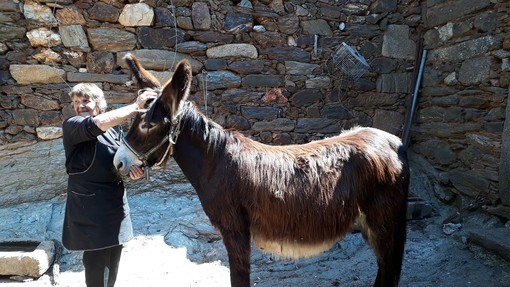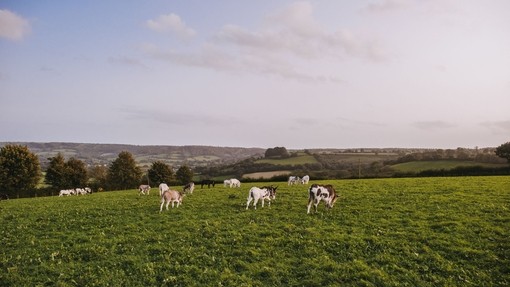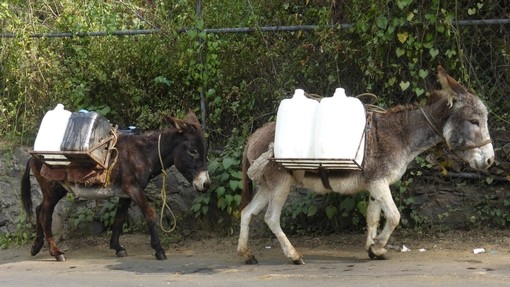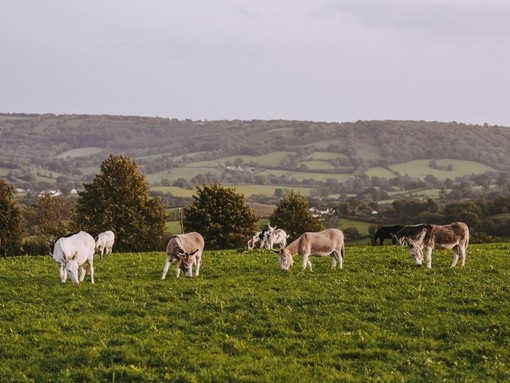
Our findings
At The Donkey Sanctuary, our care for donkeys and mules is built on the understanding that their needs are not the same as horses’ needs.
In this collaborative project with the University of Portsmouth, Canterbury Christ Church University, the Dartmoor Pony Heritage Trust, and natural horse management expert Lucina McAlpine, research has concluded that donkeys are far more sensitive to Britain’s cold, wet weather than horses.
The first study of its kind
Over a period of 16 months the research team studied 208 healthy, semi-free-ranging donkeys and horses in Devon and Somerset, finding that the two species’ sheltering habits varied wildly.
Funded by The Donkey Sanctuary, this is the first study to examine a donkey’s ability to endure cooler, wetter climates. The research showed that while horses can cope well with gloomy weather, most donkeys will seek out shelter under a light breeze, if it starts to rain, or when temperatures drop below 14 degrees.
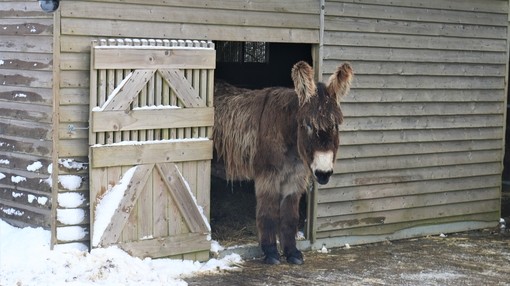
Dr Faith Burden, director, research and operational support at The Donkey Sanctuary says:
“It is interesting to see such a disparity in shelter seeking behaviour between the two species. Of particular relevance to our work at The Donkey Sanctuary, this research validates our long-held belief that donkeys need shelter from inclement weather.”
Although the study’s findings support many of the long-standing care practices at The Donkey Sanctuary, it also turned over some surprises.
“What we didn’t necessarily anticipate finding was the horses’ preference to be sheltered from insects in the sunny summer months. With summer and ‘fly season’ just around the corner, it is clear that each species requires shelter at different times and for different reasons.”
Interestingly, when insect harassment rose, horses went inside and donkeys went outside. Given that insect harassment increases at higher temperatures, this shows that donkeys’ natural preference for the warm outdoors can even supersede the discomfort of insects.
Challenging expectations
Given that the donkey is often painted as a hardy, trusty animal of burden, the notion that even a light breeze can send them to shelter may come as a surprise to many.
Dr Leanne Proops, equine behaviour expert at the University of Portsmouth, gives an insight into the evolutionary history of donkeys that can help unpack such a challenge to these expectations.
“Horses are thought to have been domesticated in the temperate regions of Eurasia, while domestic donkeys originated from the African wild ass in semi-arid regions of Northeast Africa. This means that horses tend to be better adapted to the temperate climate of the UK, whereas donkeys are better suited to hotter, drier climates.
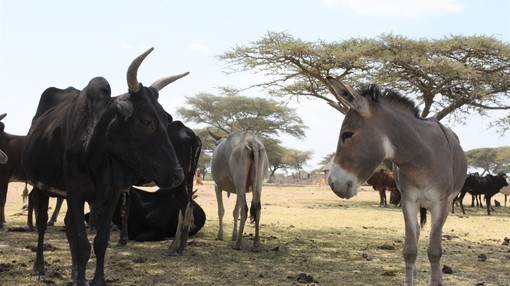
“We hope these findings can be used by those who care for either species to better protect them from conditions they’re not suited to.”
Understanding donkeys’ evolutionary story, then, should have a real impact on how we care for them in the present day.
Dr Burden concluded: “We would encourage all equine owners to consider providing appropriate shelter to their animals throughout the year so that they can choose when they use it - giving donkeys the ability to manage their own needs.”
Your support pushes vital research
Donate todayShare this page
Tags
- Research

